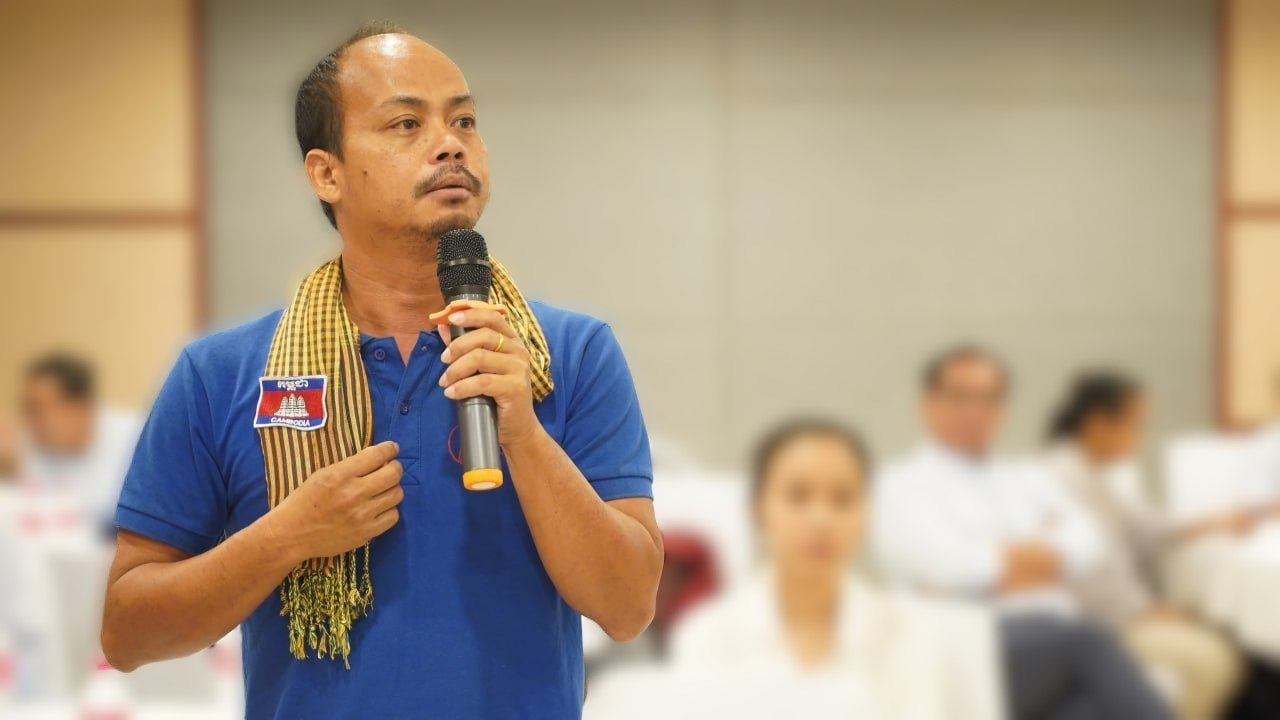At the remote northeast part of Cambodia, Ratanakiri Province, gender-based violence (GBV) has long been a hidden problem, exacerbated by deep-rooted cultural norms and limited access to education and resources.
As a member of the Technical Working Group on Gender and Gender-Based Violence (TWGG-GBV) and the Executive Director of “Adolescent and Youth Reference Group” in Ratanakiri, Mr Mot Pisey has dedicated himself in creating a safer, more equitable society for all.
“It is good that we have a GBV response mechanism in Ratanakiri, that raises awareness of GBV, strengthens capacity, and provides responses to GBV by relevant institutions,” said Pisey. With a background in social work and a passion for community development, Pisey has spent years working with local authorities, NGOs, and community members to raise awareness about GBV and promote gender equality. He has had personal connections and in-depth experiences living and working within Indigenous communities.
According to Pisey’s experience, the majority of women in Ratanakiri have experienced some forms of intimate partner violence in their lifetime. Many women and girls are subjected to physical, emotional, and sexual abuse, often with devastating consequences. In some cases, victims are blamed or shamed, further entrenching the cycle of violence.
Pisey’ works with the TWGG-GBV to support GBV services in Indigenous communities. Through a series of community-based initiatives, including awareness campaigns, training sessions, and support groups, Pisey has empowered hundreds of community members to take actions against GBV. “I believe that together we can create a brighter future for our communities, a future where women and girls are valued, respected, and empowered to reach their full potential.” Pisey says.
The “Adolescent and Youth Reference Group” is one of the initiatives which Pisey helped launch in collaboration with local authorities, NGOs and CARE Cambodia under ACCESS 1 and ACCESS 2. The initiative provides training and resources to community leaders, enabling them to identify and respond to GBV cases, provide support to survivors, and promote gender equality. Since ACCESS phase 1, over 3,500 community members have participated in GBV awareness campaigns and training sessions, and 30 community leaders have been trained to identify and respond to GBV cases.
Pisey’s commitment to ending GBV is deeply personal. Growing up in a rural village in an indigenous community, he witnessed firsthand the devastating impact of GBV. “I saw how it affected their lives, their confidence, and their hopes for the future,” Pisey recalls. “I knew I had to do something to make a difference.”
As a member of the TWGG-GBV, furthermore, Pisey has worked tirelessly to mobilize community members, engage with local authorities, and advocate for policy changes that protect the rights of women and girls. His dedication has earned him the respect and trust of his peers, and his efforts have inspired a new generation of community leaders to take action.
To celebrate the International Day of the World’s Indigenous Peoples on 9 August 2024, we congratulate Pisey’s efforts and those of the TWGG-GBV, as the community witnessing real changes. GBV cases are being reported and addressed, with attitudes towards gender equality are shifting. Pisey’s work is a testament to the power of community-led initiatives in driving social change. As the TWGG-GBV continues to grow and expand their reach, Pisey remains committed to creating a society where all individuals can thrive, free from fear of violence and discrimination.
The Australian Government through the ACCESS 2 program works closely with national, sub-national level government and civil society including Non-Governmental Organisations (NGOs), Oganisation of Persons with Disabilities (OPDs), women’s and Indigenous people’s organisations to effectively implement the Royal Government of Cambodia’s National Action Plan to Prevent Violence Against Women (NAPVAW) and the National Disability Strategic Plan (NDSP).





